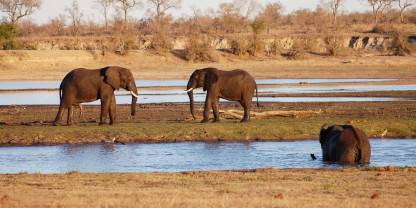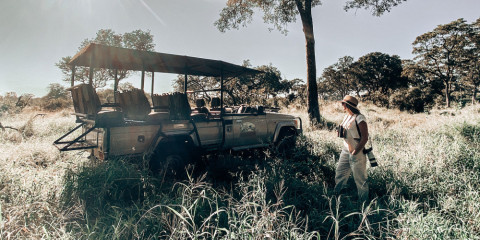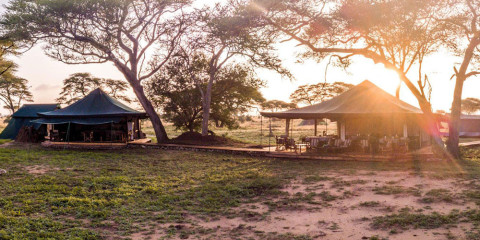Manyeleti Game Reserve is an underrated destination that shares open borders with Kruger National Park. Originally gazetted for non-White visitors under , it is now a community-owned, provincially managed part of the vast Greater Kruger ecosystem. Ideal for budget-conscious seeking an uncrowded alternative to Kruger, Manyeleti (‘Place of Stars’) now also hosts a few exclusive concession lodges.

-
Best Time To Go
- May to September (Dry season)
-
High Season
- October to March (It never gets very crowded)
-
Size
- 237km² / 92mi²
-
Altitude
-
361-466m /1,184-1,529ft
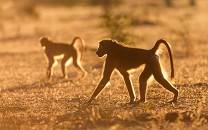 View Photos
View Photos
 View Photos
+21
Photos
View Photos
+21
Photos
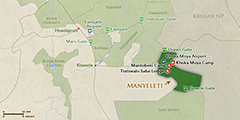 Open Map
Open Map
Pros & Cons
- Good wildlife viewing includes all the
- Animals can move freely within the immense, unfenced Greater Kruger ecosystem
- Very quiet compared to Kruger National Park and nearby private reserves
- Ownership has been restored to the previously dispossessed Mnisi community
- An affordable rest camp and restaurant cater to visitors
- A handful of concession lodges offer exclusive safari packages similar to private reserves
- Less wildlife than in nearby Sabi Sand Nature Reserve because of water limitations
- No off-road driving
- The rest camp is rundown compared to its counterparts in Kruger
Wildlife
Borders between Manyeleti, Kruger and Sabi Sands are unfenced, so wildlife can move freely between these reserves. This includes all the , along with cheetah, , giraffe, zebra and a variety of antelope. Large numbers of elephant often gather around Manyeleti’s dams, which also support . Lions are quite often seen; leopards are also present and tend to be fairly .
More about Manyeleti’s wildlifeScenery
The main habitats in Manyeleti are grassy plains and mixed woodland. In the rainy season, the vegetation tends to be quite thick. The reserve lacks major rivers, but animals can quench their thirst in Main Dam, which has a central location in front of the rest camp restaurant. Several small are dotted around the . Look out for beautiful leadwood trees along the drainage lines.
Activities
can explore Manyeleti along a good network of unsurfaced wildlife-viewing roads. It’s worth planning a route that takes in a few dams and , as they often attract plenty of wildlife. Self-drive day trips to Kruger via nearby Orpen Gate are also possible. If you stay at a concession lodge or camp, guided morning and evening will be included in the package. Some lodges offer .
Weather & Climate
Because summer (October to April) coincides with the Wet season in Manyeleti, these months are consistently hot and humid. Temperatures occasionally get up to a scorching 40°C/104°F, though the daytime average is typically 32°C/90°F. The heat and the rain peak in January and February. The winter months (May to September) are much more pleasant, averaging 26°C/79°F during the day.
More about the weather and climateBest Time To Visit
The Dry season (May to September) offers the best weather for wildlife viewing, although the mornings can be chilly. Come towards the end of the season, ideally in September, if you like to stay warm. It’s also at this time of year that the wildlife is easier to spot, as opposed to the Wet season (October to April) when the bush is thick and animals are harder to see.
More about the best time to visit
